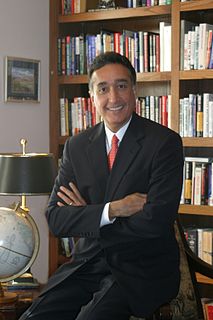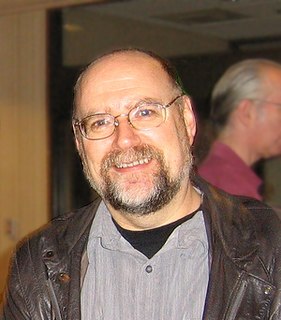A Quote by Henry Cisneros
Place-based initiatives can provide a useful framework to judge our progress in raising people out of poverty. They allow us to see whether or not a neighborhood is improving and its residents are living better.
Related Quotes
We love to think this fundamentalism and terrorism is all about poverty, and, of course, it has a connection. You can see that these people not only are poor but they have no outlets. These governments allow no opposition. So what do people do? They go to Islam. It's the only organizational institution where they can express their feelings. But it's not about poverty. I've never seen a single demonstration in which the people have come out with signs saying, "Please give us better roads. Please give us new prenatal clinics. Please give us a new sewage system."
The Democrats are as concerned about raising our kids and making sure that the values of empathy and hard work and discipline and self-respect are instilled in our children, and I've got a six-year-old daughter and a three-year-old daughter, and I'm not afraid to talk about how I want to provide them with the sort of cultural framework that's going to allow them to be successful, happy people.
We live in an enlightened age, however, an age that has learned to see and to value other living things as they are, not as we wish them to be. And the long and creditable history of science has taught us, if nothing else, to look carefully before we judge to judge, if we must, based on what we see, not what we would prefer to believe.
The strengths of our city historically have been connected to being a home for residents from all backgrounds: immigrant residents, residents who represent a diversity of race and economic situations and perspectives. And if we don't address our housing crisis, and the dramatically rising cost of living, we will lose that core of our city.
If farmers become weak the country loses self-reliance but if they are strong, freedom also becomes strong. If we do not maintain our progress in agriculture, poverty cannot be eliminated from India.But our biggest poverty alleviation programme is to improve the living standard of our farmers. The thrust of our poverty alleviation programmes is on the uplift of the farmers.
People do make considered choices about whether they want to fight, and how, and they do so from disparate circumstances. But I think there are two important frameworks in which those choices get made. One, their degree of immiseration. The greatest predictor of who will engage in criminal activity is poverty, which tells us that the decisions people make about how unlawful they're willing to be are decisively based in their own experience of immiseration. The second framework is that when people choose to act, they inevitably act where they are.
The reason I'm an American is for all the people in this country and recognizing that if business is thriving and growing, it will create more jobs, raise wages of our people, allow us to care for our seniors, get a better education for our kids, and allow us to have the kind of military that can defend American interests around the world.

































